Mozambique: Catholic Faithful reflect on Pope Francis' legacy
Mozambique: WHO says 43,000 died of Covid; IMF back; Cabo Delgado political struggle – By Joseph Hanlon
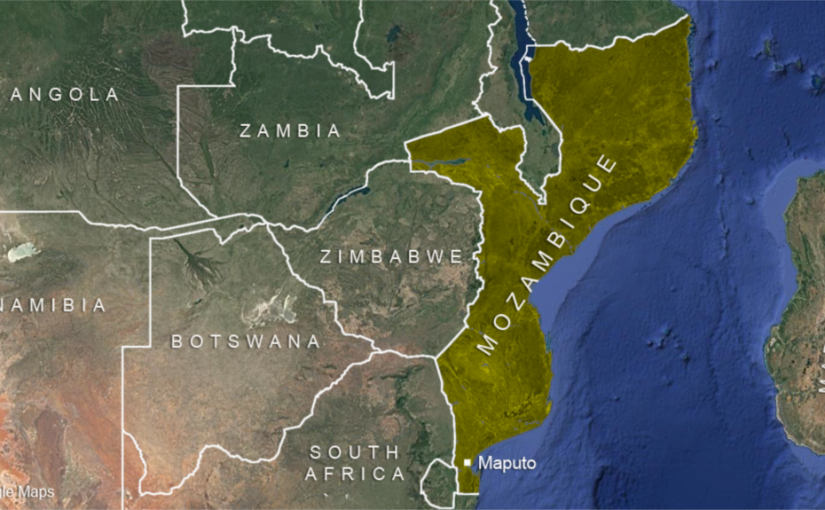
Image: VOA
WHO estimates that 20 times more people died of Covid-19 than the number of official deaths reported by the Ministry of Health. In a 5 May report, the World Health Organisation published estimates of Covid-19 deaths for most countries of the world, based on estimates of excess deaths. For Mozambique their figure is 43,000 Covid-19 deaths in 2020-21 compared to the Health Ministry number of 2,006.
The WHO study is HERE. The Ministry of Health publishes a daily newsletter which includes cumulative deaths HERE.
The worst hit large country is Russia, with 734 deaths per 100,000 people in the two years, according to WHO. South Africa is highest in the region, with 400. Mozambique is at 134 per 100,000 and other neighbours are in the same range, going down to Malawi at 88. The US and most European countries are in the range from 200 to 300.
WHO estimates that the United States reports 91% of its Covid-19 deaths and Russia only 29%. In the region, South Africa reports 38%, Zimbabwe 27%, Malawi 14%, and Mozambique only 5%.
South Africa has gone into its fifth wave with new cases rising in the past month from 1350 to 6601 per day, and a fifth wave is predicted for Mozambique. Cases are increasing in the US but still falling in Europe.
WHO estimates of Covid-19 deaths, 5 May 2022
Max replaces Celso as dauphin, as battle over Cabo Delgado causes and $ continues
Max Tonela has clearly replaced Celso Correia as dauphin, or favoured son, and President Nyusi’s confidante. Max Tonela was named Minister of Economy and Finance in March and presided as chair of the 29 April meeting of ADIN (Agencia de Desenvolvimento Integrado do Norte, Integrated Development Agency for the North). Celso Correia, who orchestrated Nyusi’s dubious landslide election victory in 2019 and was then named super minister of Agriculture and Rural Development, had also taken control of the huge pot of money for Cabo Delgado reconstruction, but now has been unceremoniously pushed aside.
Meanwhile funding remains an issue. A Cabo Delgado Reconstruction Plan was approved by the Council of Ministers in September last year, but on 6 May the secretary of state of Cabo Delgado, António Supeia, admitted, in an understatement, “we are a little behind schedule, especially in the area of infrastructure reconstruction.” (LUSA 6 May)
President Nyusi formally announced the Mozambique Support Trust Fund on 5 May, to mobilise donor funds to “combat terrorism” in Cabo Delgado. Money would be channelled through ADIN. (Noticias 6 May) This had been presented to donors some months ago, and had been rejected because most donors cannot put money into a fund that supports the military as well as development.
The alternative is a plan written by the EU, World Bank, and African Development Bank last year, with government participation, but in the time of Celso Correia. The ERDIN (Estrategia de Resiliencia e Desenvolvimento Integrado do Norte de Moçambique, Integrated Resilience and Development Strategy for the North) was submitted to government in October last year, and government has refused to give it to the Council of Ministers for consideration. An increasingly annoyed EU quietly posted it on the web in the past few weeks, on https://ec.europa.eu/fpi/system/files/2022-02/Mozambique.pdf [click HERE] .
The issue is the insistence, by some key people in Frelimo, that the war has no internal causes and is entirely external terrorism. ERDIN is not acceptable because it says (page 11) “The internal factors of the conflict include socio-economic asymmetries and the frustration of social expectations related to the exploitation of natural resources, especially among local youth, in an extractive economy with a weak relationship with the local economic fabric and little job creation. This is in addition to the perception of political and economic exclusion, aggravated by the slow progress of decentralisation and inefficient mechanisms of participation.” This simply cannot be said at a high level in Frelimo.
But there is clearly internal disagreement. “Today, as many people know and say very well, the solution in Cabo Delgado is not the military solution,” ADIN spokesperson, Joao Machatine, said on 5 May. He sees ADIN promoting the essential social and economic development. (LUSA 6 May)
IMF returns, with its tail between its legs
The IMF Board Monday 9 May agreed a new $456 mn loan, with $91 mn available immediately. The money must be repaid over 10 years, with no interest. Details of conditions have not been released, but they appear to be weaker than in the past. It seems the IMF is anxious to get back into Mozambique.
In April 2016 the IMF led the donor strike cutting off substantial aid when the full size of the $2 bn secret debt was revealed. IMF head Christine Lagarde and many ambassadors felt seriously offended because they had been personally told by Mozambican ministers that there was no further secret debt. Thus the donor strike began as personal vendettas to punish Mozambican ministers for lying to them. Aid direct to the government was cut. Only the EU and World Bank did not join the strike.
The economic damage to Mozambique was massive and the Metical lost half its value. Ordinary people and local businesses suffered, but the elite survived, the economy partially recovered, and Frelimo made no concessions. Donors and ambassadors began to realise that they had used their last weapon – cutting aid – and now had no power. Gas was coming on line and embassies were told to stress investment. As part of the normal rotation, ambassadors for whom it was a personal issue left and were replaced by others briefed to be nice to Frelimo, and normal relations were restored, albeit with a lower level of aid in some cases.
Eventually the IMF was the last holdout, and Christine Lagarde had left the fund in 2019. Historically the IMF had imposed the strongest conditions, including civil service wage caps. Slowly, the shoe was on the other foot. The IMF wanted an agreement with Mozambique but the Frelimo elite was in no hurry. In April 2019 the IMF gave a Cyclone Idai credit of $118 mn with only one condition, writing “a diagnostic report on governance and corruption challenges.” In April 2020 the IMF made $309 mn Covid-19 loan with limited conditions. But still no formal programme.
The IMF made a serious push from December 2021 ending with a staff-level agreement on 28 March this year on a three-year programme. This has now been approved by the board. Unusually, full details have not yet been released. But it appears that the only serious IMF demand is the creation of a Sovereign Wealth Fund. There is also the normal demand to curb civil service wages, and it appears a wage rise for civil servants has been delayed until after the IMF Board meeting.
On 28 March, after the staff agreement, mission head Alvaro Piris noted other conditions: “In the area of governance, the publication of the COVID audit report, submission to parliament of amendments to the Public Probity law and legislation on Anti-Money Laundering”. The Covid audit has already been released. Another requirement is reduction in VAT exemptions.
Importantly, the IMF will allow Mozambique to spend more on social protection through the National Institute for Social Action (INAS).
So major concessions on the IMF side. After six years, the IMF has returned – chastened and with its tail between its legs.
Declining health care due to unregulated private training, says health minister
Poor training by unregulated private schools and institutes partly explains the poor quality of care in some health units, Health Minister Armindo Tiago told parliament on 20 April.
For a government minister, it was an important recognition of the outcome of two decades of government higher education policy. Frelimo came under pressure from two important lobbies. Faced with increasing competition for university and higher education places and falling quality in public primary and secondary education, the middle class, particularly in Maputo, demanded an expansion of private schools and universities. And a Frelimo elite, often with dubious sources of money, saw private institutes and universities as a highly lucrative industry. So the rapid growth of unregulated private higher education followed.
Tiago said the quality of health training had declined. “There has been a proliferation of educational institutions in the health area without adequate conditions to guarantee good quality training, including infrastructures, laboratories, internships and competent teaching staff”.
He added that “that the poor care to the public is also the result of a gradual loss of values in our society and in the health sector. … We are losing such basic values as respect, empathy and compassion”.
Tiago was speaking at the annual parliamentary session of questions for ministers.
By Joseph Hanlon


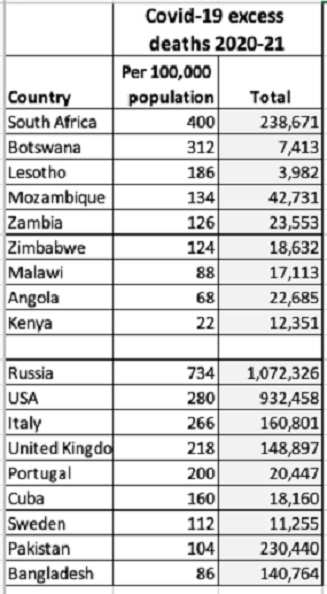


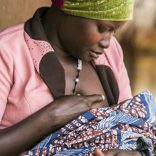
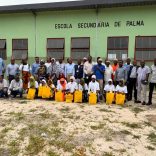
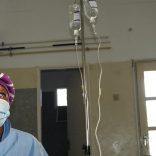


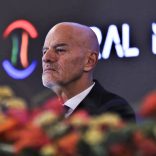


Leave a Reply
Be the First to Comment!
You must be logged in to post a comment.
You must be logged in to post a comment.